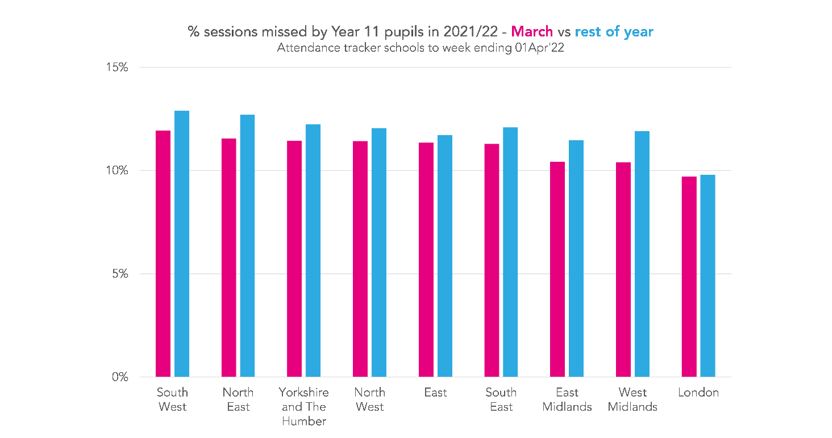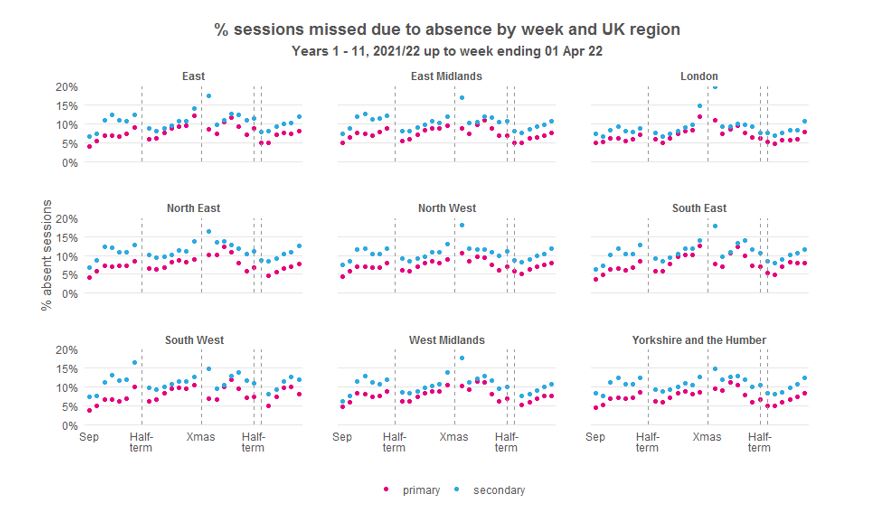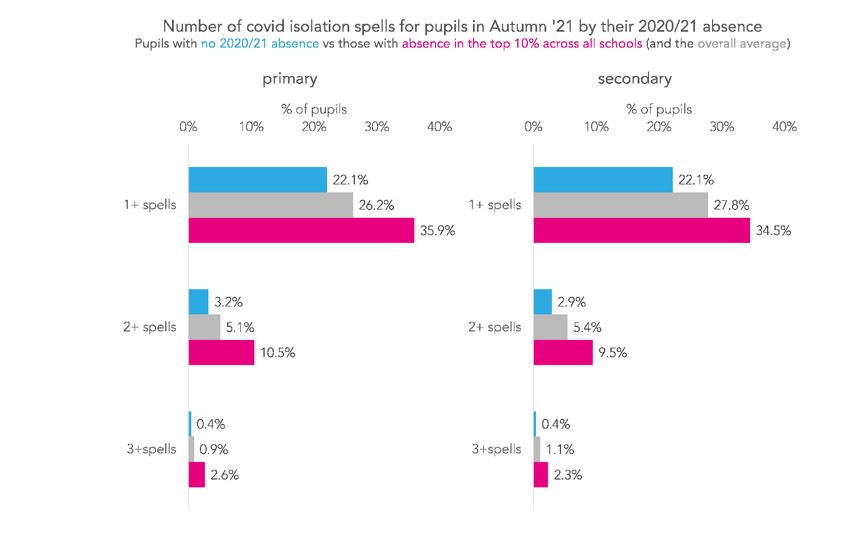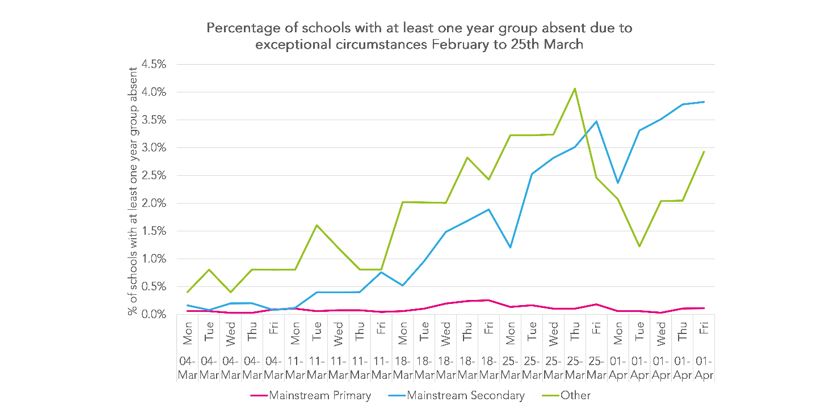Year 11 pupils missed more than one in ten lessons last month in every region except London, new data shows.
The FFT Education Datalab analysis throws up fresh questions over how the return of national exams, which start next month, will be impacted if such disruption continues, as well as pupil preparedness.
Absence rates did improve last month – with all regions seeing fewer pupils miss lessons than throughout the rest of the year.
However, in all regions apart from London, Year 11 pupils still missed on average more than 10 per cent of sessions, with the highest levels seen in the South West.
A session refers to either a morning or afternoon registration session missed by pupils, and signifies half a day of lessons.
Similar analysis of Year 6 pupil data also found less absences in March than the rest of the year, but overall absences were much lower.

Absence nationally fell from 11.8 per cent throughout the year to 11 per cent for Year 11 pupils last month, and from 7.9 per cent to 6.8 per cent for Year 6, Datalab found.
The blog post, based on data from Datalab’s attendance tracker of around 9,000 schools, also found over 100 secondary schools had to send a year group home last Friday.
Pupils who were absent last year are also more likely to be off again this year, the analysis found – seemingly supporting reports from Ofsted that poor attenders are using Covid as an excuse to skip school.
The half-term began with schools recording their highest attendance levels since June last year.
But Datalab warn absence has been “rising steadily over the last few weeks” and “remains stubbornly high in most regions”.
Attendance survey data from the Department for Education, published this week, found on-site attendance has fallen to 88.6 per cent – the lowest attendance since schools began recovering from the surge of the Omicron variant at the start of the year.
Datalab analysis shows secondary school pupils in all regions had missed between 10 per cent and 15 per cent of sessions in the week ending April 1.

Pupils off last year more likely to be absent again
Earlier this year, Ofsted warned that parents of “poor attenders” may be using “possible Covid” as an excuse for not sending their children into school.
Datalab put this theory to the test and found that pupils with the highest absence rates last year were more likely to miss school this year due to Covid isolation.
Twenty-two per cent of pupils with the lowest absence rates last year had at least one absence spell, compared with 35 per cent of pupils with the highest rates.

Pupils with higher absence rates were also more likely to isolate multiple times – 10 per cent isolated at least twice, compared with just three per cent of those with the lowest.
While the data seems to support Ofsted’s theory, Datalab say there “could be other explanations behind these patterns”.
One could be that clinically vulnerable pupils were more likely to be off sick last year and also more likely to isolate this year.
Over 100 secondary schools forced to send home year groups
The percentage of mainstream secondary schools with at least one year group absent in “exceptional circumstances” has increased gradually throughout the half-term.
Leaders previously told Schools Week how high levels of absent staff in recent weeks has forced them to send home individual year groups to prioritise exam years.
On April 1, 3.8 per cent of mainstream secondary schools with the attendance tracker had sent a year group home.

The blog post estimated there were 133 schools with at least one year group absent in exceptional circumstances.”
Questions over exams plan
The continued disruption poses questions for the government’s exams plan. Datalab queried what will happen if absence rates remain at current levels during exam season and if the end of free testing may contribute to a spike in positive cases.
Geoff Barton, general secretary of the Association of School and College Leaders, said the decision to withdraw free Covid testing is “retrograde step, particularly with exams a few weeks away”.
Meanwhile Paul Whiteman, general secretary of school leaders’ union NAHT, said the ongoing risk of illness and “mounting pressure of exams . . . is unsustainable” with staff at “breaking point”.
A DfE spokesperson said it has fairness “at the forefront of our plans for exams this summer, with adaptations such as advance information as well as a more generous approach to grading than before the pandemic”.
Exam timetables have been spaced with “with at least ten days before the first and last exam in every subject, to reduce the risk of a student missing multiple exams in a subject due to illness”.
The government said it does not expect its plans to change “except in the very unlikely case of a public health emergency”.















Your thoughts